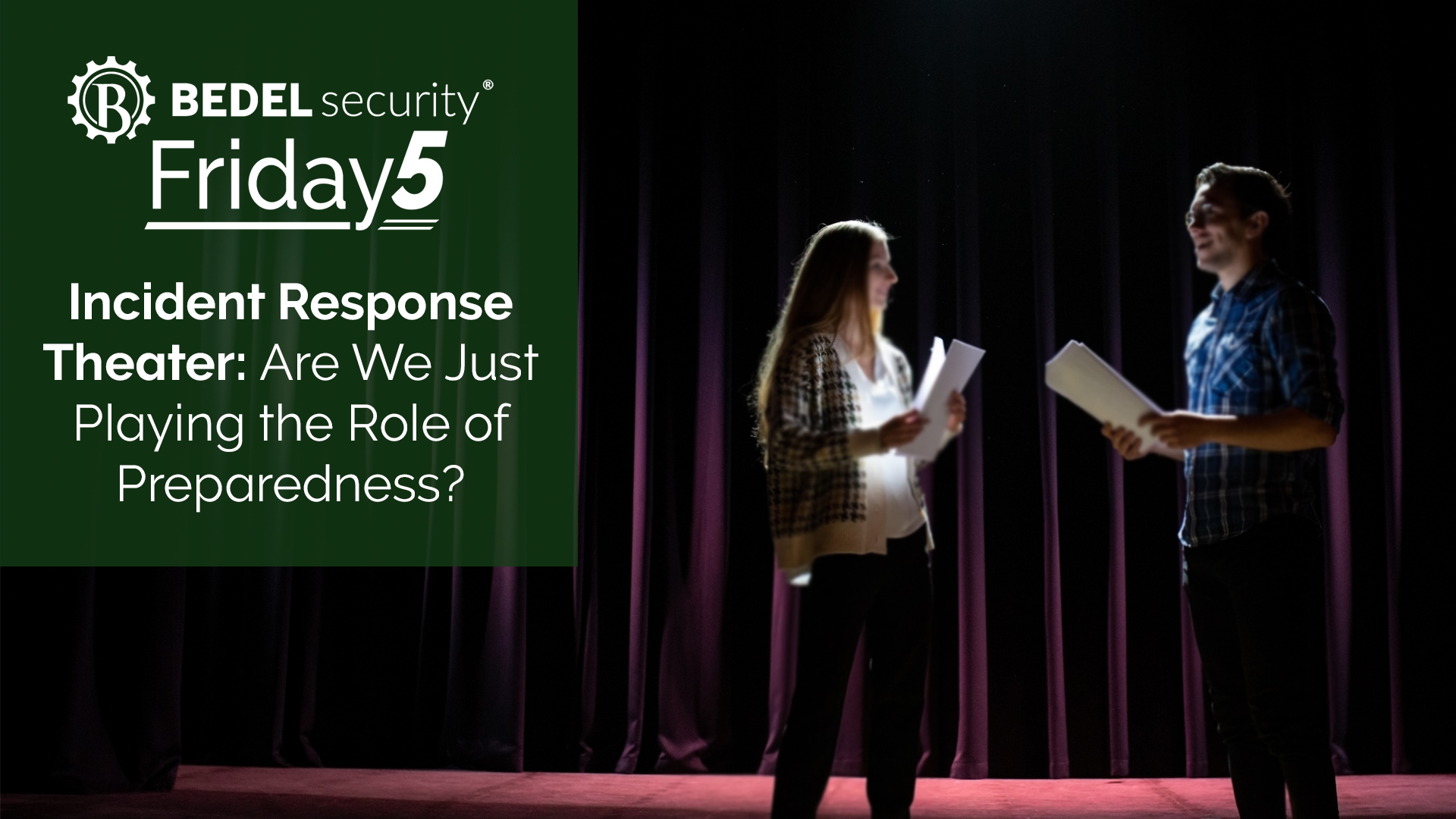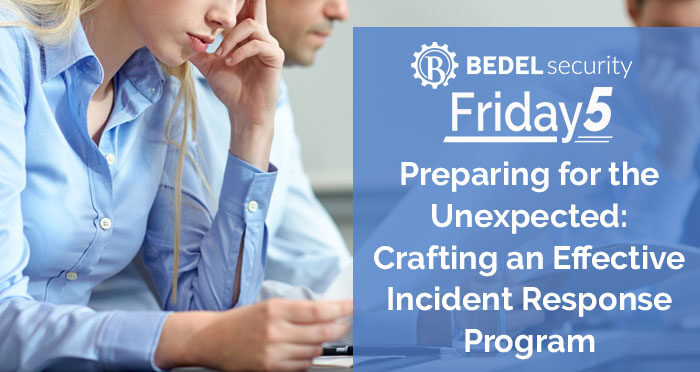Preparing for the Unexpected: Crafting an Effective Incident Response Program
In the rapidly evolving and dynamic business landscape, it is crucial for financial institutions to have and maintain an effective Incident Response...
2 min read
Brian Petzold : Updated on August 1, 2025

The curtain rises. The scene: a quiet sunny day on the teller line.
Teller 1: “It is a beautiful day today! I could not believe that the temperature was s….”
Computer alert sounds.
Teller 2: (Interrupting) “That’s strange! I just got a message on my screen that my computer might have a virus!”
Cue suspenseful music.
All: “We must assemble the Cyber Response Team!”
Incident response tabletop exercises often feel like we are performing a play. The script is written to be easily understood and acted out. Everyone knows their lines. We know that the plot will progress and that in the end, safety and soundness will prevail. But in real life, incidents are not scripted…they are chaos! So, we need to ask ourselves: Are our tabletop exercises built for performance or for reality? Are they built for compliance or chaos?
While the purpose of tabletop exercises is to build organizational muscle memory, repeating the same exercises detracts from the emotional realism of a true incident. We start checking boxes instead of learning to work with one another in crisis mode. We perform these exercises so well that we become overconfident in our ability to deliver in a real incident.
Why do we do this? We want the results of our tabletop exercises to make us look good to our leaders and to Examiners. Because of this, we are fearful of showing any adversarial tendencies or indecision during the exercise, so we avoid any surprise elements. We also tend to leave out lawyers, public relations, or other ancillary departments that might challenge the script.
Often, this problem is not realized until an actual event highlights our lack of true preparation. It may seem simple during an exercise for the CEO to make the call to restore data to the previous night’s backups, but during an actual incident, the gravity of customers losing a day of transactions seems to loom much larger, and the decision is much harder to make. And what happens if the CEO is on a flight and is unavailable when the decision needs to be made? And the legal department disagrees with the decision that the team wants to make? Incidents always seem to occur at the worst possible time!
Tabletop exercises should not be plays. We need to keep them real. We need to be introducing stress and chaos into the exercise. Here are some things to consider when making the exercises more realistic:
It is time to start training for chaos in our incident response exercises. Begin today to work on ways to make tabletop exercises more realistic and less like a school play!
If you need assistance in performing incident response tabletop exercises, we can help! Just contact us at support@bedelsecurity.com to get started!

In the rapidly evolving and dynamic business landscape, it is crucial for financial institutions to have and maintain an effective Incident Response...

The Second Amendment to the New York Department of Financial Services (NYDFS) Part 500, finalized on November 1, 2024, introduces more stringent...